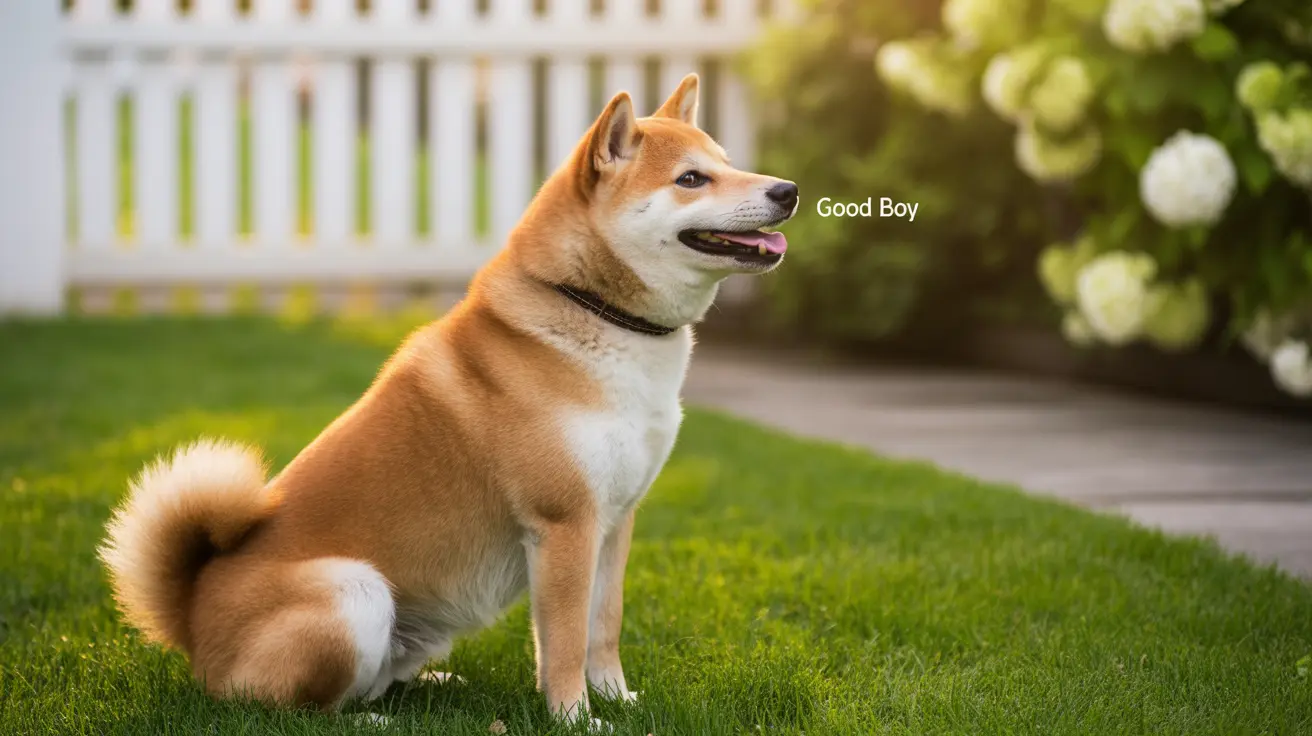Understanding Shiba Inu Vocal Patterns
Shiba Inus are generally considered moderate barkers, displaying a more reserved vocal nature compared to traditionally vocal breeds like Beagles or Yorkshire Terriers. Their barking is typically situational and purposeful, rather than constant or attention-seeking.
These intelligent dogs are known for being selective about when they vocalize, usually reserving their barks for specific circumstances such as alerting their owners to potential threats or expressing strong emotions.
The Famous "Shiba Scream"
Beyond traditional barking, Shiba Inus are famous for their unique vocalization known as the "Shiba scream." This distinctive sound can range from high-pitched yodeling to dramatic vocalizations, typically occurring during moments of extreme excitement, displeasure, or when they're trying to express strong emotions.
Common Triggers for Shiba Inu Barking
Understanding what prompts a Shiba Inu to bark can help owners better manage their dog's vocal behaviors. Common triggers include:
- Unfamiliar visitors or strangers approaching their territory
- Unusual sounds or disturbances
- Excitement during play or before walks
- Separation anxiety (though less common in this independent breed)
- Response to other dogs or animals
Training and Managing Barking Behavior
While Shiba Inus aren't typically excessive barkers, proper training is still essential to ensure their vocalizations remain appropriate and controlled. Early socialization plays a crucial role in developing a well-adjusted dog who knows when barking is and isn't necessary.
Positive reinforcement techniques work particularly well with this intelligent breed. Rewarding quiet behavior and teaching commands like "quiet" or "enough" can help manage any unwanted barking patterns that may develop.
Environmental Management
Creating an enriching environment can help prevent boredom-related barking. This includes:
- Regular exercise and mental stimulation
- Interactive toys and puzzle feeders
- Structured daily routines
- Adequate social interaction while respecting their independent nature
Frequently Asked Questions
Do Shiba Inus bark a lot compared to other dog breeds?
No, Shiba Inus are generally considered moderate to low barkers compared to other dog breeds. They tend to bark with purpose rather than excessively or without reason.
What situations typically cause a Shiba Inu to bark or vocalize?
Shiba Inus typically bark in response to unfamiliar visitors, unusual noises, during play, or when alerting their owners to potential threats. They may also vocalize when experiencing strong emotions through their characteristic "Shiba scream."
How can I train my Shiba Inu to bark less or only when necessary?
Consistent positive reinforcement training, early socialization, and teaching commands like "quiet" are effective methods. Regular exercise and mental stimulation also help prevent boredom-related barking.
What is the meaning behind the different sounds Shiba Inus make, like their "Shiba scream"?
The Shiba scream is a unique vocalization that can indicate extreme excitement, displeasure, or strong emotions. Different vocalizations may signal various needs or emotional states, from playfulness to anxiety.
Can excessive barking in a Shiba Inu indicate health or anxiety problems?
Yes, unusual increases in barking can signal underlying health issues or anxiety. If your Shiba Inu's barking pattern changes significantly, consulting with a veterinarian is recommended to rule out medical or behavioral concerns.
Conclusion
While Shiba Inus do bark, their vocalizations tend to be purposeful and moderate compared to many other breeds. Understanding their unique vocal patterns, addressing their needs through proper training and environmental management, and recognizing the meaning behind their different vocalizations can help create a harmonious relationship with these fascinating dogs.






